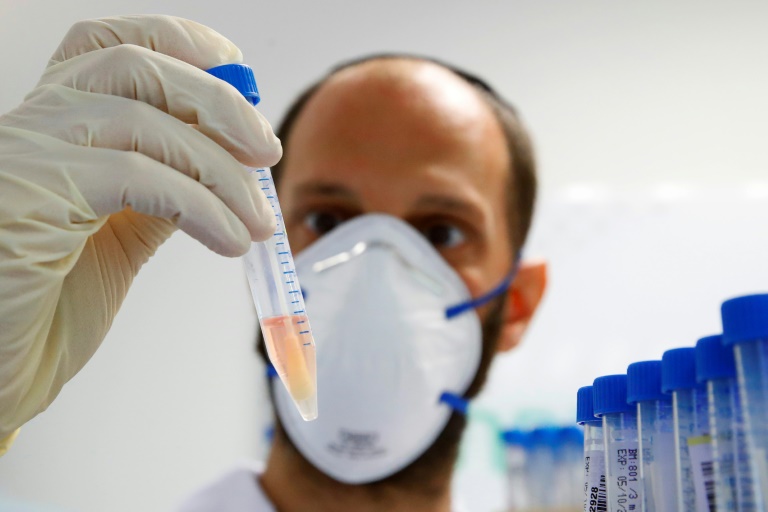Antioxidant biomaterial could provide relief for chronic pancreatitis

A lab technician holds a tube containing a swab sample taken for Covid-19 serological test at the Leumit Health Services laboratory in the Israeli city of Or Yehuda in this file picture taken on July 16, 2020 – Copyright AFP Rostislav NETISOV
Northwestern University researchers have developed a new antioxidant biomaterial that could provide relief to people living with chronic pancreatitis (a condition where the pancreas has become permanently damaged from inflammation and stops working properly).
For patients living without a pancreas, side effects such as managing blood-sugar levels can be a lifelong struggle. By secreting insulin in response to glucose, islets help the body maintain glycemic control. Without functioning islets, people must closely monitor their blood-sugar levels and frequently inject insulin.
Before surgeons remove the pancreas from patients with severe, painful chronic pancreatitis, they first harvest insulin-producing tissue clusters, called islets. These are then transplanted into the vasculature of the liver.
The goal of the transplant is to preserve a patient’s ability to control their own blood-glucose levels without insulin injections.
The downside is that the process inadvertently destroys 50-80 percent of islets, and one-third of patients become diabetic after surgery. Three years post-surgery, 70 percent of patients require insulin injections, which are accompanied by a list of side effects, including weight gain, hypoglycaemia and fatigue.
With the new approach, researchers transplanted islets from the pancreas to the omentum — the large, flat, fatty tissue that covers the intestines — instead of the liver.
To create a healthier microenvironment for the islets, the scientists next adhered the islets to the omentum with an inherently antioxidant and anti-inflammatory biomaterial, which rapidly transforms from a liquid to a gel when exposed to body temperature.
To protect the islets and improve outcomes, the researchers turned to the citrate-based biomaterials platform with inherent antioxidant properties developed in his laboratory. Used in products approved by U.S. Food and Drug Administration for musculoskeletal surgeries, citrate-based biomaterials have demonstrated the ability to control the body’s inflammatory responses. Ameer set out to investigate whether a version of these biomaterials with biodegradable and temperature-responsive phase-changing properties would provide a superior alternative to a biologic gel obtained from blood.
In an animal model the gel successfully prevented oxidative stress and inflammatory reactions, significantly improving survival and preserving function of transplanted islets. It marks the first time a synthetic antioxidant gel has been used to preserve function of transplanted islets.
The new hydrogel also could also be used for various cell replacement therapies, including stem cell-derived beta cells for treating diabetes.
The study has been published in the journal Science Advances. The paper is titled “Phase-changing citrate macromolecule combats oxidative pancreatic islet damage, enables islet engraftment and function in the omentum.”
Antioxidant biomaterial could provide relief for chronic pancreatitis
#Antioxidant #biomaterial #provide #relief #chronic #pancreatitis





